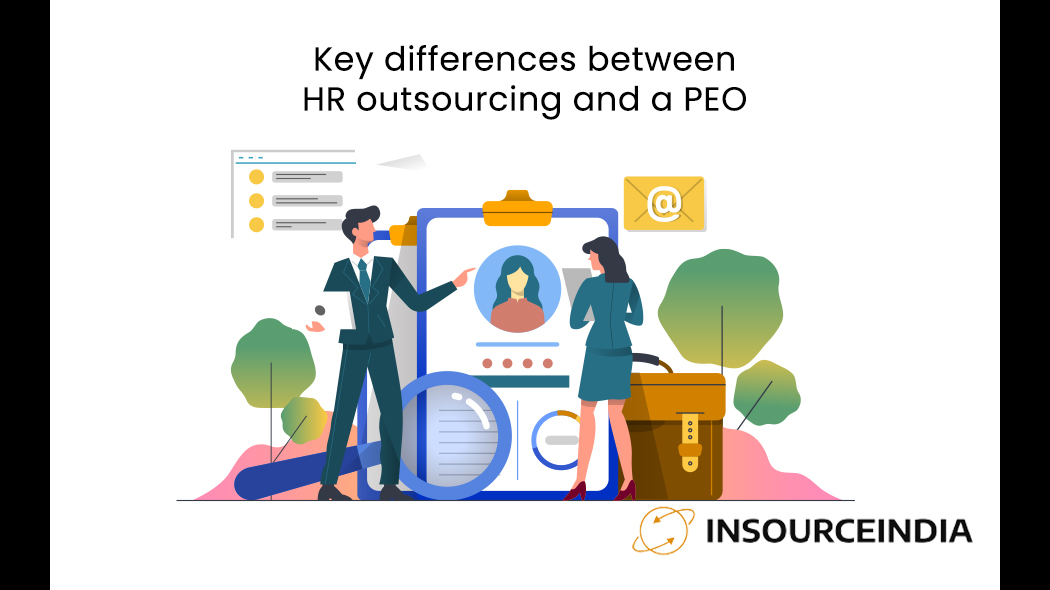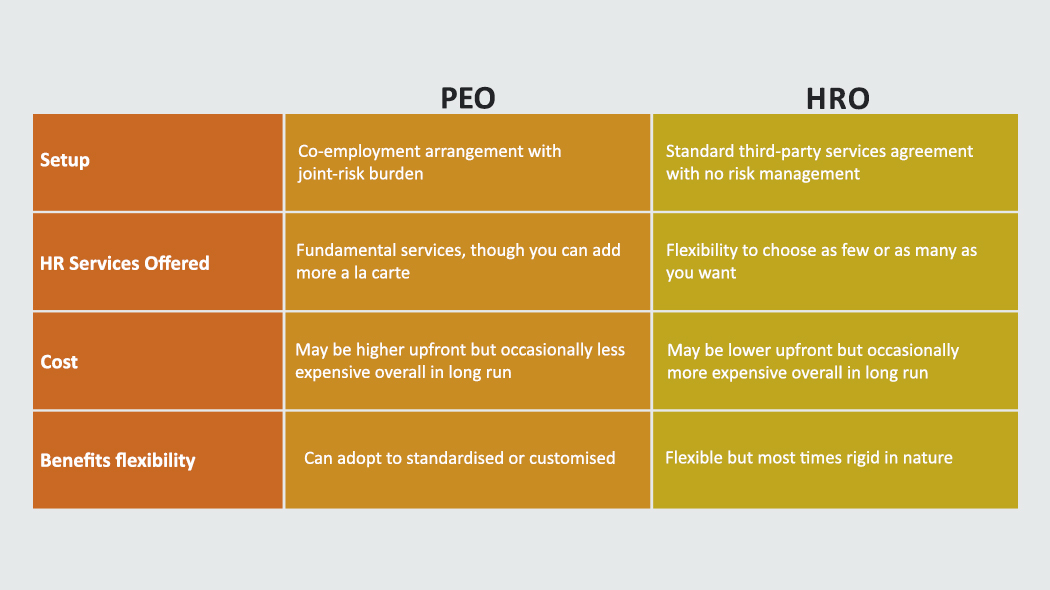As businesses grow, they often face the challenge of managing their human resources (HR) effectively. This is where HR outsourcing and professional employer organizations (PEOs) come into play.
While they may seem similar at first glance, there are some key differences between HR outsourcing and a PEO.
HR Outsourcing:
Human Resources (HR) outsourcing is a strategic business practice in which a company contracts out some or all of its HR functions to a third-party provider. The HR outsourcing provider takes over the responsibility for HR tasks such as recruitment, payroll, benefits administration, training, and compliance with labor laws and regulations.
One of the main benefits of HR outsourcing is that it can be highly customizable. Companies can choose which specific HR functions they want to outsource and can work with their provider to create a tailored solution that meets their specific needs. Additionally, outsourcing can often be more cost-effective than hiring additional HR staff, as companies only pay for the services they need.
HR outsourcing can provide several benefits for businesses, including:
- Cost savings: Outsourcing HR functions can reduce costs associated with hiring and training HR staff, purchasing and maintaining HR software, and managing employee benefits programs.
- Improved efficiency: HR outsourcing providers have the expertise and technology to handle HR functions quickly and efficiently, freeing up the company’s resources to focus on its core competencies.
- Access to specialized expertise: HR outsourcing providers have specialized knowledge and experience in HR functions, which can be especially beneficial for small businesses that may not have the resources to hire an in-house HR staff.
- Risk management: Outsourcing HR functions can help companies comply with labor laws and regulations, reducing the risk of costly legal disputes and penalties.
Professional Employer Organizations (PEOs):
A Professional Employer Organization (PEO) is a company that provides a comprehensive suite of HR services to businesses, enabling them to outsource their HR functions while remaining in control of their operations. PEOs work by becoming a co-employer with the business, taking on some of the employer’s responsibilities, while the business remains in charge of daily operations and decision-making.
By partnering with a PEO, businesses can gain access to a wider range of HR services and resources than they might be able to manage on their own. PEOs can also offer economies of scale, as they may be able to negotiate better rates for benefits and insurance coverage thanks to their larger client base.
Key benefits of working with a PEO :
- Access to a larger pool of benefits and services that may not be available to small businesses on their own.
- PEOs often leverage their size and bargaining power to offer competitive employee benefit packages
- Ability to Negotiate better insurance rates, resulting in cost savings for businesses.
- PEO’s can help businesses navigate complex employment laws and regulations.
- As co-employers, PEOs assume some of the liability and risk associated with employment, which can help protect businesses from legal issues and costly penalties.
Key Differences between PEO & HRO
The main difference between HR outsourcing and a PEO lies in the level of employer responsibility that is assumed by each. With HR outsourcing, the client company retains ultimate responsibility for their employees and remains the employer of record. In contrast, with a PEO, the PEO assumes many of the employer responsibilities and becomes the employer of record for the client company’s employees.
Another key difference between the two is the scope of services offered. While HR outsourcing can be highly customized, it typically only covers a few specific functions. PEOs, on the other hand, offer a more comprehensive solution that covers a wide range of HR functions.
Finally, the financial arrangement between the client company and the provider is different. With HR outsourcing, the provider charges a fee for the services rendered. With a PEO, the provider charges a fee based on a percentage of the client company’s payroll.
In conclusion, both HR outsourcing and PEOs can be valuable tools for businesses looking to improve their HR management. The choice between the two ultimately depends on the specific needs of the business, including the level of employer responsibility they are comfortable with and the range of HR services they require.


